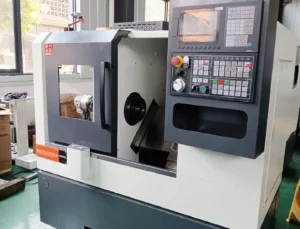Why CNC machines are used?
The Importance of CNC Machines in Manufacturing
CNC machines have revolutionized the manufacturing industry in recent decades, offering unparalleled precision, efficiency, and versatility.
In this article, we will explore the reasons why CNC machines are widely used in various manufacturing processes.

Precision and Accuracy
One of the primary reasons why CNC machines are favored in manufacturing is their exceptional precision and accuracy.
Unlike manual machining methods, which rely on human coordination and skill, CNC machines operate with computer-controlled precision.
This ensures that each part or component is produced to exact specifications, eliminating errors and reducing waste.
Consistency and Repeatability
Another key advantage of CNC machines is their ability to produce consistent and repeatable results.
Once a program is set up, a CNC machine can reproduce the same part or component over and over again with minimal variation.
This level of consistency is essential in industries where uniformity is a requirement, such as aerospace, automotive, and medical device manufacturing.
Complexity and Versatility
CNC machines are capable of machining complex shapes and intricate designs that would be difficult or impossible to achieve using traditional machining methods.
With multi-axis capabilities and advanced software control, CNC machines can create highly detailed parts with ease.
This versatility makes CNC machines the go-to choice for industries that require intricate and precise components.
Efficiency and Productivity
Compared to manual machining, CNC machines offer superior efficiency and productivity.
With automated tool changes, rapid spindle speeds, and optimized cutting strategies, CNC machines can produce parts much faster than human operators.
This increased efficiency leads to shorter lead times, lower production costs, and higher throughput for manufacturers.
Quality Control and Inspection
CNC machines can be equipped with sensors and probes to perform in-process quality control and inspection.
This real-time monitoring allows manufacturers to detect and correct any deviations or defects during the machining process, ensuring that only high-quality parts are produced.
This level of quality control is crucial for industries where safety and reliability are paramount.
Cost-Effectiveness and ROI
While the initial investment in a CNC machine may be significant, the long-term cost-effectiveness and return on investment (ROI) are undeniable.
By reducing scrap, minimizing rework, and increasing production efficiency, CNC machines can help manufacturers save money and increase profitability over time.
In addition, the versatility of CNC machines allows them to adapt to changing production needs, making them a valuable asset for any manufacturing facility.
Conclusion
In conclusion, CNC machines are a cornerstone of modern manufacturing, offering unparalleled precision, consistency, versatility, efficiency, and cost-effectiveness.
By harnessing the power of computer-controlled machining, manufacturers can produce high-quality parts with ease, meet stringent industry standards, and gain a competitive edge in the global market.
As technology continues to advance, CNC machines will undoubtedly play a vital role in shaping the future of manufacturing.
